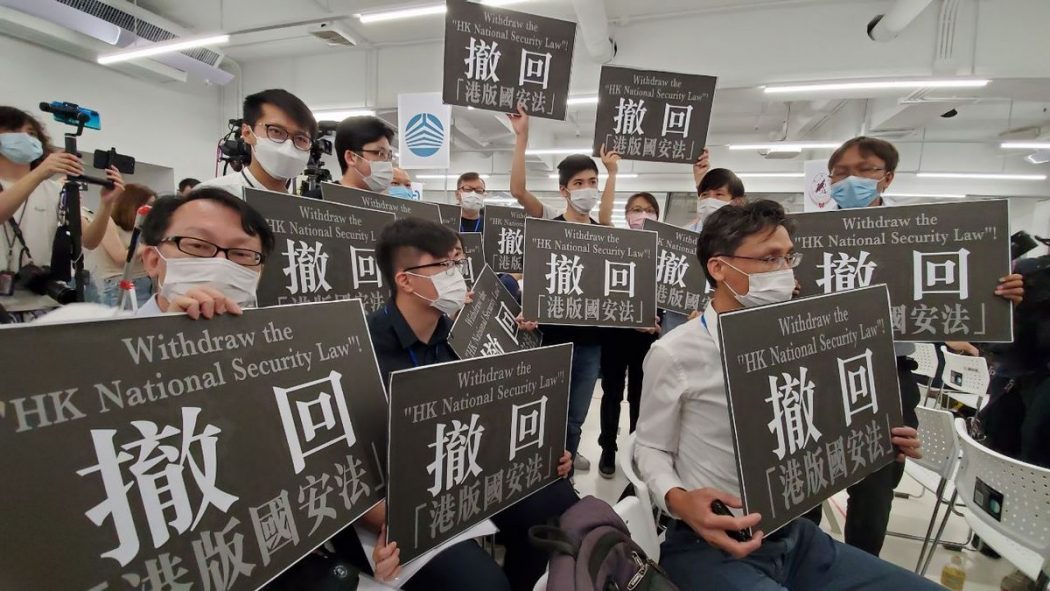Over 300 pro-democracy district councillors have voiced opposition to the looming national security law and pledged to establish a congressional platform in order to reflect the “true views” of the public.
On Saturday, all but one of the 18 district councils joined an unprecedented joint meeting convened by Wan Chai District Council Chair Clarisse Yeung in Admiralty to discuss the implementation of the law.

In June 2020, Beijing inserted national security legislation directly into Hong Kong’s mini-constitution – bypassing the local legislature – following a year of pro-democracy protests and unrest. It criminalised subversion, secession, collusion with foreign forces and terrorist acts, which were broadly defined to include disruption to transport and other infrastructure. The move gave police sweeping new powers, alarming democrats, civil society groups and trade partners, as such laws have been used broadly to silence and punish dissidents in China. However, the authorities say it has restored stability and peace to the city.
“The council objects to any legislation that may restrict democracy and freedom,” the councillors said in a joint statement. “Hong Kong national security laws undermine ‘One Country, Two Systems,’ will doom Hong Kong’s future, and should be withdrawn immediately.”
Several councils including Tuen Mun, Yuen Long and Tai Po raised an impromptu motion to establish a “Hong Kong People’s Congressional Platform.”

“[The platform] shall engage the public in discussions on Hong Kong issues in order to reflect their true views and strive for the common well-being of Hongkongers,” the motion read.
Tuen Mun District Councillor Sam Cheung urged fellow councillors to pass the motion. “We all saw how the government is oppressing district councils and restricting the rights of popularly elected councillors. 17 districts must join forces to establish the congressional platform.”

Following a halt in proceedings over a dispute about the house rules, the Northern District Council ended their session and left the meeting. 10 councils passed the motion and the remaining six pledged to follow up on the matter.
The pro-democracy camp won 17 of the 18 districts in the local elections last November and subsequently secured the positions of chairs and vice-chairs, empowering them to call meetings. Several councillors from the Island District – the only council where pro-democracy camp remain a minority – also attended Saturday’s meeting.

The Home Affairs Bureau which oversees the 18 district councils released a statement on Friday that said the joint meeting was legally invalid and incompatible with the councils’ function. “The Government urged DC members to focus on livelihood issues and advise the Government on district affairs from a pragmatic perspective,” it read.

Kowloon City District Council Vice-Chair Kwong Po-yin dismissed the Bureau’s claims about the meeting’s political nature: “Many citizens reflected their concerns over the national security law’s impact on future generations and hence considered emigration. They are deeply worried… We have a duty to voice their concerns to the SAR government, the Chinese government and the world.”
